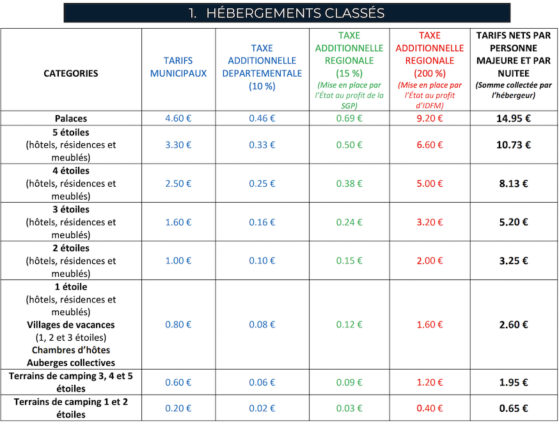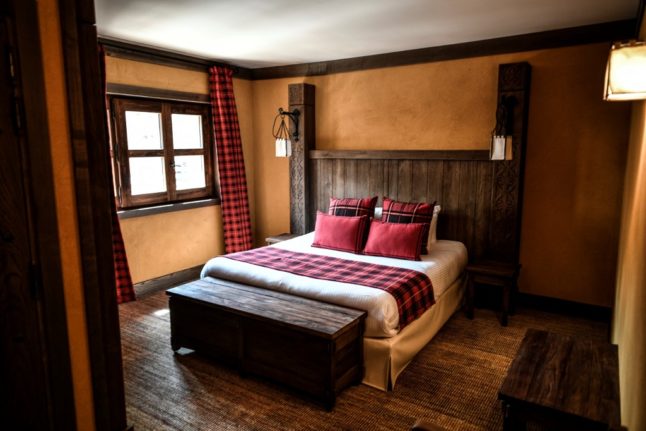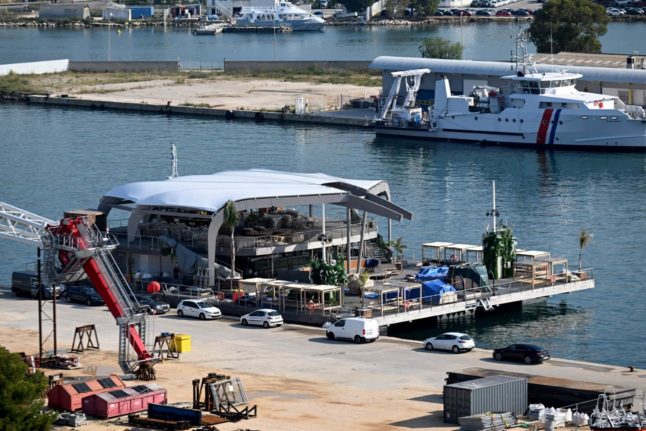When visiting France – whether you’re spending time in one of the big cities, a beach resort or the Alps – there is a good chance you will find yourself paying the ‘tourist tax’ (or the ‘holidaymaker tax’).
Known as the taxe de séjour in French, the tourist tax has been around in various forms since 1910 – you pay it to the host (eg the hotel, campsite owner or Airbnb host) and is calculated based on where you stay, what type of place you stay in and how many nights you stay.
Then twice a year, hosts pay their accumulated taxes to the local authority.
The tax represents a small fee added in addition the cost of your accommodation, often paid after payment for the accommodation has already been processed.
As such, you might be asked to pay it – either in cash or card – when arriving at your hotel, even if you have already paid online for the room. When it comes to Airbnb, the company’s website states that the “tax is collected when guests book their reservation, not at the time of stay.”
How much is it?
The specific rate of the tax depends on the nature of accommodation, which includes its classification (star rating), as well as the rate voted on by the municipality. It is paid per adult per night. Children are not considered in the calculation of the number of occupants.
For furnished accommodation, municipalities typically set a rate of between one percent to five percent of the nightly price per person, which usually corresponds to just a few euros per trip.
Fro example the tourist tax in Lyon ranges from €0.22 for the cheapest accommodation to €5.01 for the most expensive whilst in Bordeaux it’s €0.20 for cheapest and €4.60 for most expensive.
What about rates in Paris?
For the city of Paris, it is a bit more expensive. At the start of 2024, the city tripled the rate in an effort to collect more funds for transport projects.
Previously, the tourist tax in the Paris region ranged from €0.25 for the most modest campsites to €5 for the highest end hotels (palaces), paid per night per adult.
The updated version of the tax in the capital city now ranges from €0.65 (per night per person) for the most basic campsites to €14.95 for the highest end hotels (palaces).
This means that as of 2024, one person staying in a three-star Paris hotel for one night would pay €5.20, on top of the price of accommodation. If the adult stays for five nights, they would pay €26.
Two people sharing a double room would pay double the cost, because the tax is per person (or per adult at least) not per room.
You can see the breakdown for the city of Paris below:

Where in France is the tourist tax applied?
It is quite common across France, even in areas that may not seem overly touristic.
As of 2022, it was paid in around 23,000 of France’s 34,955 municipalities.
If you want to see whether it is applied in an area you are thinking of visiting, you can search the location using this French government simulator.
How much does France earn from the tourist tax?
When considering Airbnb alone, France earned €148 million from the tourist tax in 2022, which is more than double the amount from 2019 (€58 million).
Unsurprisingly, it was the city of Paris which received the most from the tourist tax from Airbnb – at least €24.3 million in 2022.



 Please whitelist us to continue reading.
Please whitelist us to continue reading.
Indeed, I just received an email from the Paris hotel I have booked in February that the tax increased since I made the reservation – from €3-something to €8-something. I assumed it had to do with the Olympics.
Yes, we are booked for a two week trip in October 2024, about 30 miles east of Paris, and we have been advised of an extra tourist charge of 3.00 € per adult per night being applied. Evidently it’s to pay towards improvements to transport and infrastructure for the Olympics. Pah!